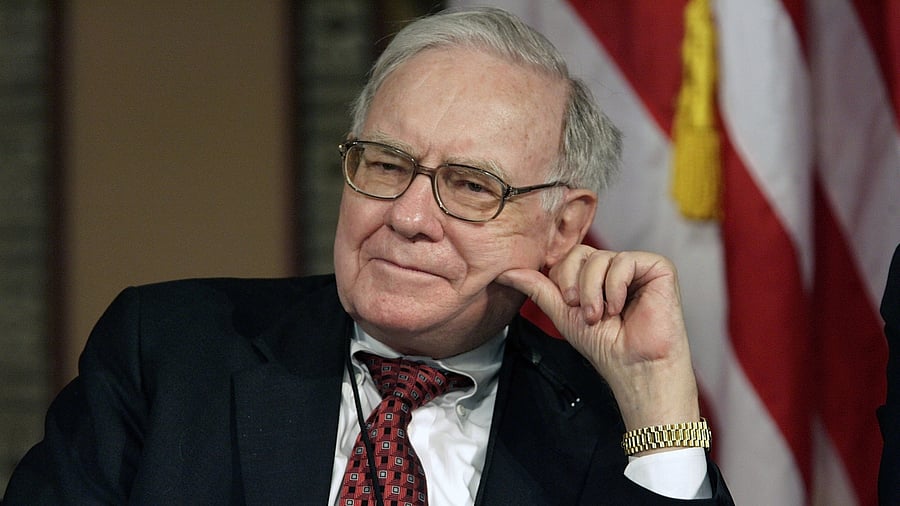
Warren Buffet
Credit: X/@amitisinvesting
Trump’s tariffs have led to fears of trade tension, recession and higher inflation in the US which has unnerved investors worldwide. Benchmark indices Sensex and Nifty logged their worst single-day decline in 10 months, as fears that Trump's policies on reciprocal tariffs may lead to recession and higher inflation in the United States.
With Monday's sharp fall, the benchmark indices suffered one of their worst declines in five years. In a horrible day for investors, the 30-share BSE benchmark Sensex tanked 2,226.79 points, or 2.95 per cent, to settle at 73,137.90. During the day, the benchmark index slumped 3,939.68 points, or 5.22 per cent, to 71,425.01.
The NSE Nifty tumbled 742.85 points, or 3.24 per cent, to settle at 22,161.60. Intra-day, the benchmark dropped 1,160.8 points, or 5.06 per cent, to 21,743.65.
Such significant drops in the stock market are reminiscent of the 2008 stock market crash with similar tones of unnerved investors, fears of a trade war and rapidly declining market indices.
In 2008, Warren Buffett, chairman of Berkshire Hathaway, a diversified holding company, during an interview with the New York Times, said, “The financial world is a mess, both in the United States and abroad. Its problems, moreover, have been leaking into the general economy, and the leaks are now turning into a gusher. In the near term, unemployment will rise, business activity will falter and headlines will continue to be scary.”
Speaking further, Buffett advised how one might be able to stay afloat financially during such tumultuous times. His main advice seemed to be guided by the idea of 'being fearful when others are greedy, and be greedy when others are fearful.”
Buffett added, "Stocks may go lower or higher a month or a year from now. But the market will move higher, perhaps substantially so, well before either sentiment or the economy turns up".
The Berkshire Hathaway chief's advice pushes the idea of patience and strategic decision-making for investors.
During the great depression, where Dow, an index fund, hit historic lows in 1932. A stark distinction between the economic conditions of the time and the state of the stock market could be noted. The stock market rose by approximately 30 percent while economic conditions continued to deteriorate until the election of Theodore Roosevelt in 1933.
Similar patterns could be seen throughout the 20th century during the 2nd World War and the Financial crisis of 1987. Due to these instances, Warren Buffet suggests that investors should take advantage of bad times and buy stocks when the market is down. “In short, bad news is an investor’s best friend. It lets you buy a slice of America’s future at a marked-down price.”
Through these examples, he explains how the market still rose in value over time despite falling ups and downs throughout the 20th century. Despite these various crises “the Dow rose from 66 to 11,497.” he reminds us. One might believe that it seems impossible to lose money while the market rose so significantly, yet many investors lost a significant amount of wealth. Buffet explained this phenomenon by stating “The hapless ones bought stocks only when they felt comfort in doing so and then proceeded to sell when the headlines made them queasy.”
Furthermore, he explained how people often feel comfortable about having cash as a holding and expressed the futility of cash by stating, "The policies that the government will follow in its efforts to alleviate the current crisis will probably prove inflationary and therefore accelerate declines in the real value of cash accounts.”
Instead, he expressed the need to invest in the stock market stating that “Equities will almost certainly outperform cash over the next decade, probably by a substantial degree.”
He concluded by explaining that the best way to benefit from a tumultuous stock market is by investing while the market is low and not “waiting for the comfort of good news” to invest.
